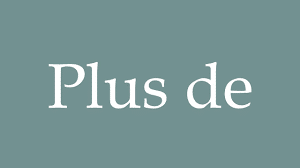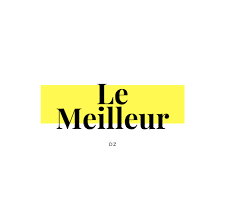Concept of Plus De: A Comprehensive Guide

Introduction to “Plus De”
The French phrase “plus de” is a versatile component of the language, integral to expressing quantity, comparison, and negation. Understanding its usage is essential for mastering French. This comprehensive guide explores the nuances of “plus de,” providing insights into its grammatical roles, common phrases, and practical applications in everyday conversation.
Grammatical Role of “Plus De”
In French grammar, “plus de” serves multiple purposes. It can indicate an increase in quantity, a comparison between two entities, or the absence of something. Grasping these grammatical functions is key to using “plus de” correctly. For instance, in “Il y a plus de personnes ici” (“There are more people here”), “plus de” denotes an increase in quantity.
Using “Plus De” to Indicate Quantity
One of the primary uses of “plus de” is to indicate a greater amount or number of something. For example, “J’ai plus de livres que toi” means “I have more books than you.” Here, “plus de” compares the quantity of books between two people. This form is essential for expressing comparisons and enhancing your descriptive abilities in French.
“Plus De” in Comparisons
“Plus de” is frequently used in comparative sentences to highlight differences in quantity or degree. For example, “Elle a plus de patience que moi” translates to “She has more patience than me.” This usage emphasizes that “plus de” not only compares but also quantifies abstract concepts like patience.
Negative Usage of “Plus De”
In negation, “plus de” implies the absence or cessation of something. For instance, “Il n’y a plus de pain” means “There is no more bread.” Understanding this negative form is crucial for conveying the end or lack of something, adding depth to your communication skills.
Common Phrases with “Plus De”
Several common phrases incorporate “plus de,” enriching everyday conversations. Examples include “plus de détails” (more details), “plus de temps” (more time), and “plus de questions” (more questions). Familiarity with these phrases allows for more fluid and natural interactions in French.
“Plus De” in Formal Writing
In formal writing, “plus de” is used to provide detailed comparisons and to elaborate on points. For example, “L’entreprise a vu une augmentation de plus de 20% de ses bénéfices” means “The company saw an increase of more than 20% in its profits.” This formal usage is vital for academic and professional contexts.
“Plus De” in Spoken French
In spoken French, “plus de” is often used for emphasis and clarity. For example, “J’ai besoin de plus de temps pour finir” translates to “I need more time to finish.” Mastering this colloquial usage helps in everyday conversations and enhances verbal communication skills.
“Plus De” in Different Tenses
“Plus de” can be used across various tenses to indicate past, present, or future quantities. For instance, “Il avait plus de temps hier” means “He had more time yesterday,” while “Elle aura plus de responsabilités demain” translates to “She will have more responsibilities tomorrow.” Understanding its application in different tenses is crucial for accurate and effective communication.
Challenges in Using “Plus De”
Learners often face challenges in using “plus de” correctly, particularly in distinguishing its use in positive and negative contexts. For example, “Il n’y a plus de vin” (There is no more wine) versus “Il y a plus de vin” (There is more wine). Practicing these distinctions helps overcome common pitfalls and improves language proficiency.
Practical Tips for Mastering “Plus De”
To master “plus de,” immerse yourself in French media, practice with native speakers, and engage in writing exercises. Regularly using “plus de” in different contexts will enhance your understanding and fluency. Additionally, reviewing grammar rules and examples can solidify your grasp of this versatile phrase.
Conclusion
“Plus de” is a fundamental element of the French language, essential for expressing quantity, comparison, and negation. By understanding its grammatical roles, common phrases, and usage in various contexts, learners can significantly improve their French language skills. Mastery of “plus de” enhances both written and spoken communication, making it a vital component of language learning.
FAQs
- What does “plus de” mean in French? “Plus de” in French means “more of” or “no more of” depending on the context. It is used to indicate an increase in quantity or the absence of something.
- How is “plus de” used in comparisons? “Plus de” is used in comparisons to denote a greater quantity or degree, such as in “Il a plus de livres que moi” (He has more books than me).
- Can “plus de” be used in negative sentences? Yes, “plus de” can indicate the absence of something in negative sentences, for example, “Il n’y a plus de lait” (There is no more milk).
- What are some common phrases with “plus de”? Common phrases include “plus de temps” (more time), “plus de questions” (more questions), and “plus de détails” (more details).
- How can I practice using “plus de” effectively? To practice using “plus de” effectively, immerse yourself in French media, practice with native speakers, and engage in writing exercises that incorporate the phrase in various contexts.




